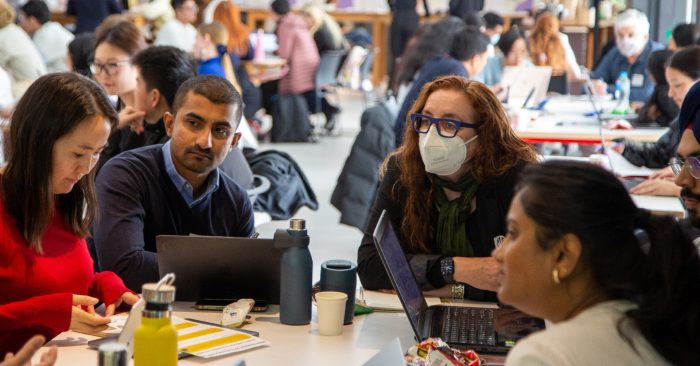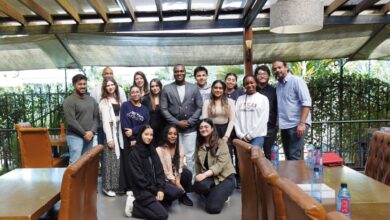Seeking Liverpool’s future entrepreneurs

UNSW is investing $700,000 in a new program to foster the next generation of innovators in South Western Sydney.
UNSW Sydney is committing $700,000 to a Health Tech Entrepreneurship Program that will support South Western Sydney-based researchers, entrepreneurs and innovators to start and scale their ventures.
Based in Liverpool, the program is an expansion of UNSW Founders, a dedicated entrepreneurship unit supporting UNSW students, staff, and alumni to build entrepreneurial skills to found and create companies.
UNSW executive lead for the Greater Sydney Strategy, Professor Claire Annesley, said: “We’re incredibly excited to bring our highly successful UNSW Founders program to South West Sydney.
“The Health Tech Entrepreneurship Program will be a unique offering within the Liverpool Innovation Precinct where we can cultivate the next generation of entrepreneurs with a specific focus on supporting unmet needs in the region.
“One of the aims of the new program is to encourage women and founders from culturally and linguistically diverse (CALD) backgrounds into entrepreneurship. Programs tailored to facilitate this include the New Wave program for female founders and Impact X for those from a CALD background.”
UNSW’s investment has received further support from Liverpool Innovation Precinct. Activities to support the promotion of this program to the Precinct will be supported by Investment NSW.
Lance Chia, Director Investment and Innovation at the Liverpool Innovation Precinct, said the significance of UNSW’s investment in the Health Tech Entrepreneurship Program to the local community could not be overestimated.
“Health and social assistance is the largest employer in the region, which is also rich in cultural diversity and under-represented groups. They will be the primary beneficiaries of this exciting initiative by being able to tap into the UNSW Founders expertise locally to create new businesses, create new jobs right where they live, and contribute directly to the economic development of South Western Sydney.”
In its first year, the Health Tech Entrepreneurship Program will offer a breakfast workshop series, a Pitch Night competition, a New Wave program (targeting female founders) and an Impact X program (specifically designed for early-stage startups and teams) and more.
At the Pitch Night competition participants will pitch their ideas for addressing the health needs of their local communities to secure funding for their concepts. The event aims to drive discussions and partnerships that lead to meaningful progress in healthcare innovation.
Following the Pitch Night, online modules cultivating the development and refinement of clinical health innovations will be available to participants.
UNSW Founders
UNSW Founders is the University’s dedicated entrepreneurship unit. The team is composed of 25 ex-founders, angel investors, program designers, facilitators, marketers, scientists, and product managers. The team works one-on-one with startups and runs a range of success incubator and accelerator programs.
UNSW Founders run startup programs that reduces the risk of new ventures by providing them with entrepreneurial education, mentoring, investor networks, incubation space and ongoing founder community support, contributing to UNSW being recognised as the leading entrepreneurial University in Australia. A quarter of The Australian’s top 100 innovators of 2023 are affiliated with UNSW Sydney.
The Liverpool Innovation Precinct
The Liverpool Innovation Precinct, anchored around the NSW government’s $790 million expansion of Liverpool Hospital, is UNSW’s flagship health precinct site in Greater Western Sydney.
Established in 2017, it encompasses health services, education and research, and aims to drive innovation in Liverpool by building on longstanding partnerships between precinct member organisations.
Liverpool Innovation Precinct is a partnership between South Western Sydney Local Health District, Liverpool City Council, South Western Sydney Primary Health Network, Western Sydney University (WSU), School Infrastructure, Department of Education, University of Wollongong (UoW), TAFE NSW, Sydney Catholic Schools and the Ingham Institute.



